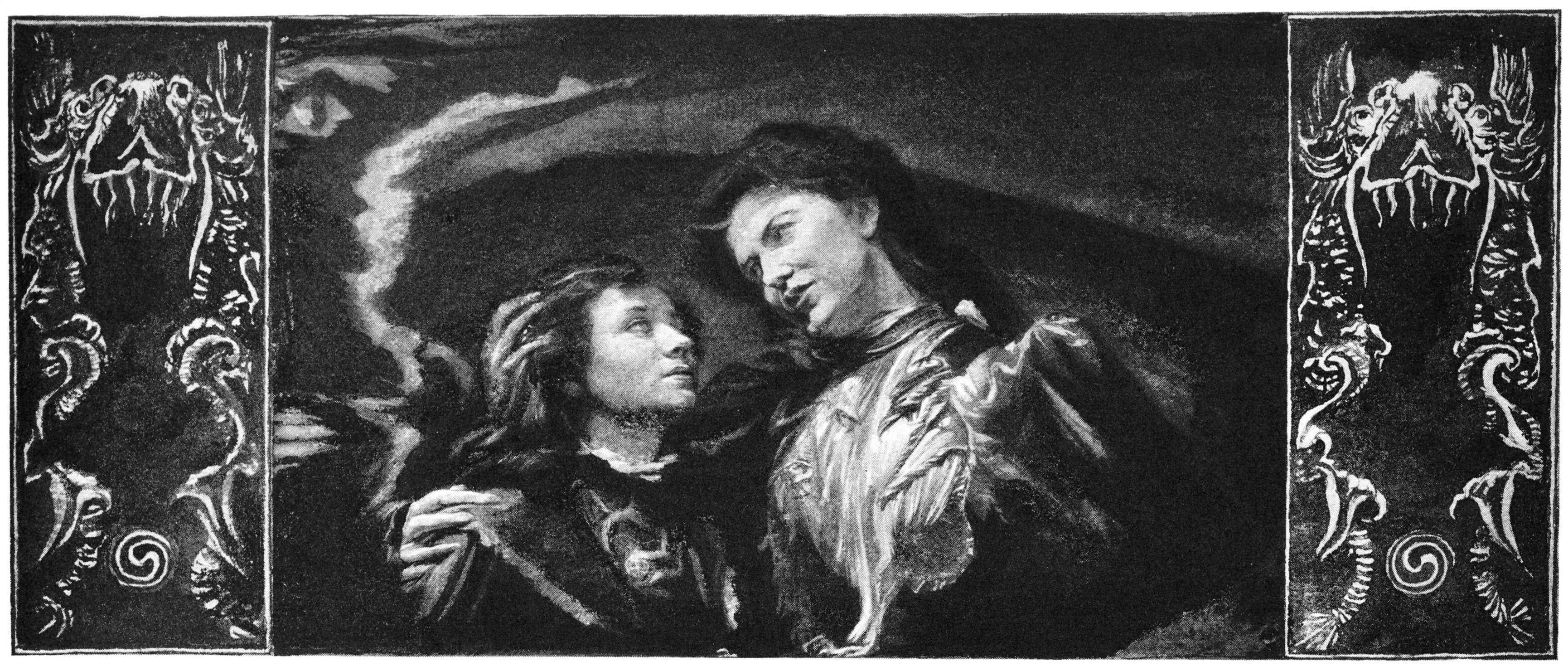
I started reading Henry James’ 1898 novel The Turn of the Screw with some awareness of the book’s reputation of having an ambiguous narrative: the young governess’s story could be read as a straightforward documentation of a tragic haunting … or it could be read as a madwoman’s diary, the ghosts she describes all just figments of her mind.
Upon reading the book — and upon having read two other books published at about the same time, namely Robert Chambers’ The King in Yellow and Joseph Conrad’s Heart of Darkness — my take is that James intended it to be a straightforward gothic haunting tale.
The Turn of the Screw has a story-within-a-story narrative frame similar to that of Heart of Darkness: an unnamed narrator tells of a gentleman named Douglas who is telling a ghost story to impress his peers at a country retreat. Douglas’ tale, in turn, is the first-person narration of a young governess put in charge of two orphaned children at a remote country manor. As in Heart of Darkness, the unnamed narrator doesn’t editorialize on the believability of the story being told, but Douglas, the secondary narrator, actively vouches for the governess’ character:
“She was a most charming person, but she was ten years older than I. She was my sister’s governess,” he quietly said. “She was the most agreeable woman I’ve ever known in her position; she would have been worthy of any whatever. … we had, in her off-hours, some strolls and talks in the garden— talks in which she struck me as awfully clever and nice ….” (James, Prologue)
The governess was just twenty years old when the events of The Turn of the Screw took place; if she were suffering from delusional mental illness severe enough to drive her to murder at that age, her mental condition was unlikely to improve in the subsequent years, this being long before the invention of anti-psychotic medication (remission of untreated mental illness is possible, but doesn’t happen in most cases). Likewise, if she were a sociopathic murderess who preyed on children, one would think either the master of Bly would have found her at fault for Miles’ death (and subsequently destroyed her career if he didn’t have her arrested) or that Douglas might have sensed her unpleasant nature, or gotten reports from his sister, and either way not found her quite so nice. So, Douglas’ introduction lends the governess’ narrative an air of believability.
However, even with Douglas’ confidence in her story, it’s possible that the governess could act as an unreliable narrator in her own story. But when I compare her narrative with that of Hildred Castaigne in The King in Yellow, I don’t see the hallmarks of an unreliable narration. While the characters who interacted with Castaigne consistently behaved as though they thought he might be crazy, the characters who interact with the governess largely treat her as though she’s sane. Her interactions with Mrs. Grose are particularly important there:
It was not till late next day that I spoke to Mrs. Grose; the rigor with which I kept my pupils in sight making it often difficult to meet her privately, and the more as we each felt the importance of not provoking— on the part of the servants quite as much as on that of the children— any suspicion of a secret flurry or that of a discussion of mysteries. I drew a great security in this particular from her mere smooth aspect. There was nothing in her fresh face to pass on to others my horrible confidences. She believed me, I was sure, absolutely: if she hadn’t I don’t know what would have become of me, for I couldn’t have borne the business alone. (James, Chapter XI)
Using Douglas to introduce the governess as a reliable source and the governess’ own portrayals of her working with Mrs. Grose all lead me to believe that James intended this as an old-fashioned ghost story. If not, I think he’d have used some of the techniques that Chambers used to cue the reader in to Castaigne’s madness. I think that critics who seek an alternative explanation are running into their own problems suspending their disbelief in the supernatural. Maintaining at least the illusion of believability is important to me as a writer, because I rarely compose fictional narratives that don’t contain some supernatural elements.
On the other hand, there are always readers who can’t be reached no matter how well-constructed a given story is; I’ll never forget my graduate school roommate who shunned fiction of any kind because she didn’t want to spend her time on things that “weren’t real.”
Leave a Reply
You must be logged in to post a comment.